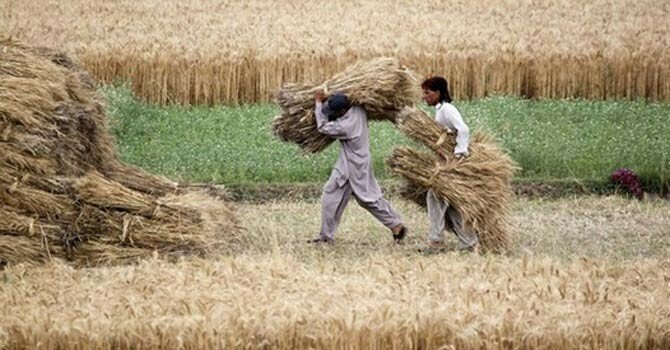KBP and a faction of Pakistan Kisan Ittehad have declared their intent to escalate protests over what they deem as alarming developments in the ongoing wheat harvesting season.
The agricultural heartland of Punjab is bracing for upheaval as the farming community gears up for a province-wide protest campaign against what they perceive as government apathy towards the plummeting wheat prices. With the Punjab government yet to intervene in the wheat market, farmers find themselves vulnerable to exploitation by unscrupulous private buyers.
The Kisan Board Pakistan (KBP) and a faction of Pakistan Kisan Ittehad (PKI) have declared their intent to escalate protests over what they deem as alarming developments in the ongoing wheat harvesting season. They cite manipulation by hoarders, middlemen, and stockists, leading to substantial losses for farmers.
KBP Chief Khalid Bath raised concerns over the reported arrests of local association leaders in cities like Sargodha and Chiniot. Despite alleged coercive measures by the provincial government, Bath affirmed that farmers from across Punjab are mobilizing towards the provincial capital to stage a sit-in protest in front of the Punjab Assembly. He warned of road blockades in various districts if authorities attempt to thwart their demonstration.
Ayub Mayo, another prominent farmer leader, expressed dismay at the perceived indifference of the authorities. Mayo criticized the lack of tangible progress despite the government’s promises of a farmer-friendly policy. He emphasized the urgent need for fair wheat prices through timely procurement to alleviate farmers’ woes.
The farmers’ representatives are demanding accountability for the decision to import an additional 0.8 million tonnes of wheat, which they argue exacerbates their predicament. Haji Ramzan of KBP lamented the challenges in accessing inputs at reasonable rates during the wheat plantation season, attributing increased production costs to collusion between middlemen, hoarders, and relevant departments.
Ramzan warned of dire consequences if farmers continue to face exploitation, cautioning that unsustainable farming practices could deter future cultivation efforts. He urged the provincial government to procure four million metric tons of wheat and revise prices to ensure farmers’ viability.
Responding to the crisis, Punjab Food Minister Bilal Yasin assured that significant decisions would be made under the directive of Chief Minister Maryam Nawaz. Yasin pledged to address farmers’ grievances to avert further protests.
Acknowledging the impact of delayed harvesting and high moisture content on wheat quality, officials hinted at government intervention once harvesting reaches full swing. Minister Yasin hinted at imminent decisions to mitigate the crisis and alleviate farmers’ concerns.
As Punjab braces for intensified protests, all eyes are on the government’s response to the escalating wheat crisis. The outcome of Monday’s deliberations and subsequent actions will determine the trajectory of farmer-government relations and the fate of Punjab’s agricultural sector.
